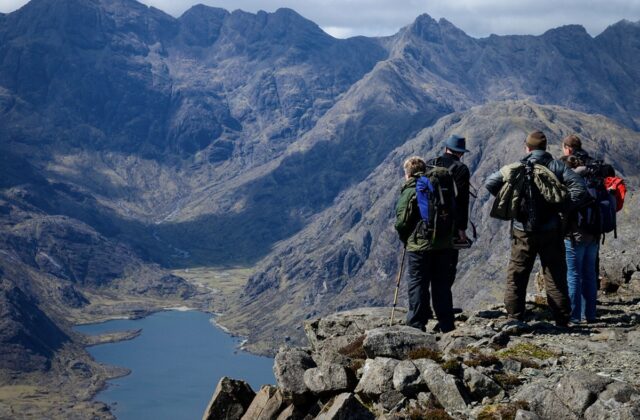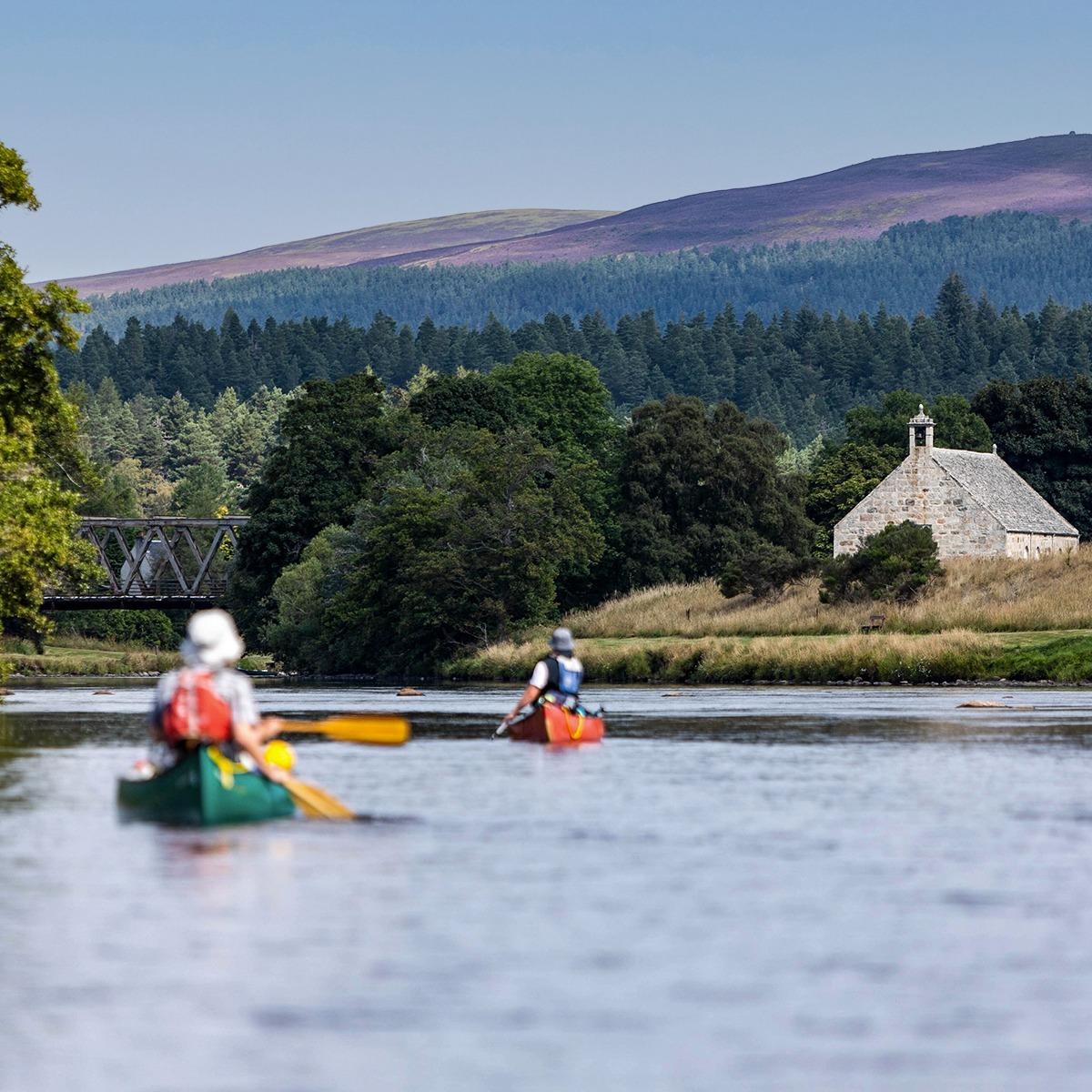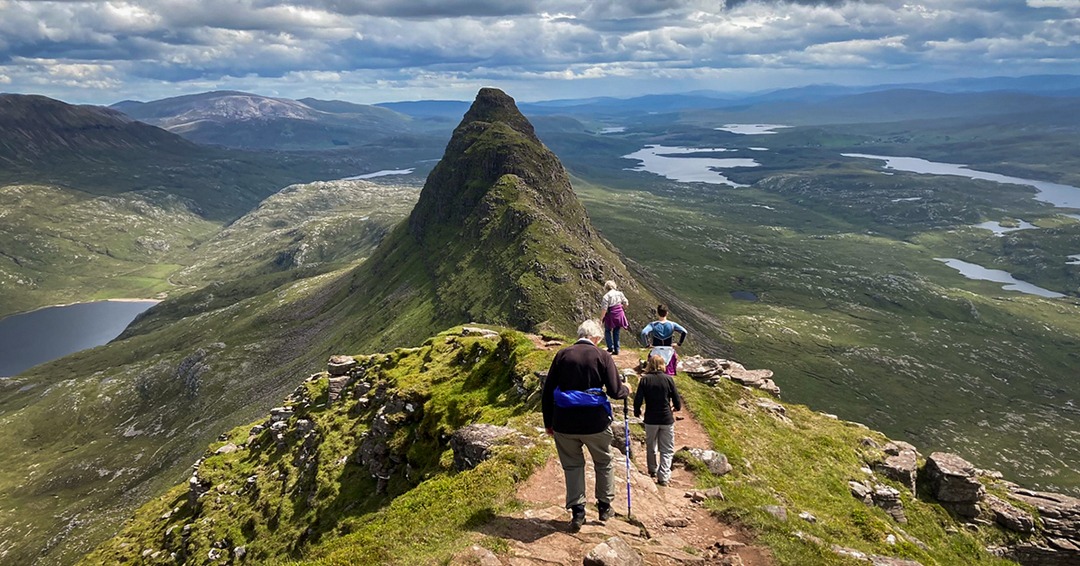Wilderness Scotland Believes In Traveling Without Compromise

Aviemore, Scotland. February 6, 2023: Wilderness Scotland, alongside brands Wilderness Ireland and Wilderness England, has been dedicated to operating in as sustainable a way as possible since its inception two decades ago. The company has taken an industry-leading position on climate change and emissions reductions and delivers significant support each year to environmental action and communities through its Wilderness Environment and Community Fund. And in 2023, it continues that charge, focusing on more ways it can be a force for good in travel, and in turn, make travel a force for good in the world.
Building upon a philosophy that “well-managed, sustainable tourism supports local economic development, sustains local communities and traditions, and shines a light on nature and wildlife conservation,” Wilderness Scotland looks to maximize the positive benefits of tourism while seeking to minimize the negative impacts.
Now, Wilderness Scotland has taken it a step further with the introduction of a brand-new Low Carbon Adventure – Scottish Highlands trip, designed by its founder Paul Easto. A unique five-day/four-night private tour, it combines a traditional walking trip with low carbon travel. Incorporating everything from sustainable culinary experiences to rewilding efforts, wildlife conservation experiences and more, guests on this adventure travel by foot, e-bike, train and EV, staying at a rustic mountain bunkhouse not reachable by any roads and a final night at one of Scotland’s most sustainable high-end hotels. The trip offers a glimpse at what the company believes is the future of traveling sustainably, and what it means to travel without compromise.
Further to that, Wilderness Scotland has added a dedicated Low Carbon Travel page on its website, highlighting its lowest impact holidays – the trips that don’t go above 20KgCO₂e a day (the average daily carbon footprint is 30KgCO₂e), while continuing to provide guests with a world-class adventure. These trips include:

- Sea Kayaking – The Summer Isles (carbon footprint of 9.8kg): A six-day kayaking holiday in Scotland’s northwest featuring camping in hidden bays and on secluded beaches and locally-sourced, predominantly vegetarian meals.
- Road Cycling – Scotland’s National Parks (carbon footprint 16.9kg): A seven-day cycling adventure between Scotland’s two national parks where motorized transport has been reduced to short transfers with a focus on exploring Loch Lomond and the Trossachs and the Cairngorms National Parks by bike on various circular and point-to-point routes.
- Walking – The West Highland Way (carbon footprint 18.5kg): This eight-day trip is along Scotland’s most iconic long-distance trail and is the company’s only guided point-to-point walking tour. The only motorized elements on this trip are the local luggage transfers, with the itinerary starting and finishing at a train station (and 95 miles of walking in between).
Some of Wilderness Scotland’s other green initiatives include:

- At least one meat-free day on all of its trips
- Increasing the optional client payment to its Wilderness Environmental Community Fund (formerly the Conservation Contribution Scheme) from €10 to €12, raising money to support both conservation and community causes
- Use of more EVs and e-bikes
- The recent design and development of Wilderness’ own net zero office headquarters, powered by renewable energy on a brownfield site in the Cairngorms National Park
- The creation of a Carbon Emissions Framework Methodology paper intended to benefit the travel industry at large
- Carbon labeling across all of its trips
- And more!
All of the above initiatives work together in helping the company achieve True Net Zero Status by the end of 2030, as it endeavors to reduce total emissions by 90% and invest solely in projects that permanently remove carbon from the atmosphere for those emissions that remain. It has already demonstrated its commitment to sustainable tourism by introducing of one of the world’s first carbon labeling schemes for travel, calculating the per traveler carbon footprint of every single one of its trips. Another example of its commitment to sustainability is via its Carbon Emissions Framework Methodology, an open-source paper designed to support the company’s accountability on its progress and to assist other tourism businesses in both reducing carbon emissions as well as making their own commitments to Net Zero.
For more information on all the above trips, Wilderness Scotland’s commitment to improve sustainability, its Net Zero goals, and more, visit WildernessScotland.com.
 Travel Dreams Magazine
Travel Dreams Magazine